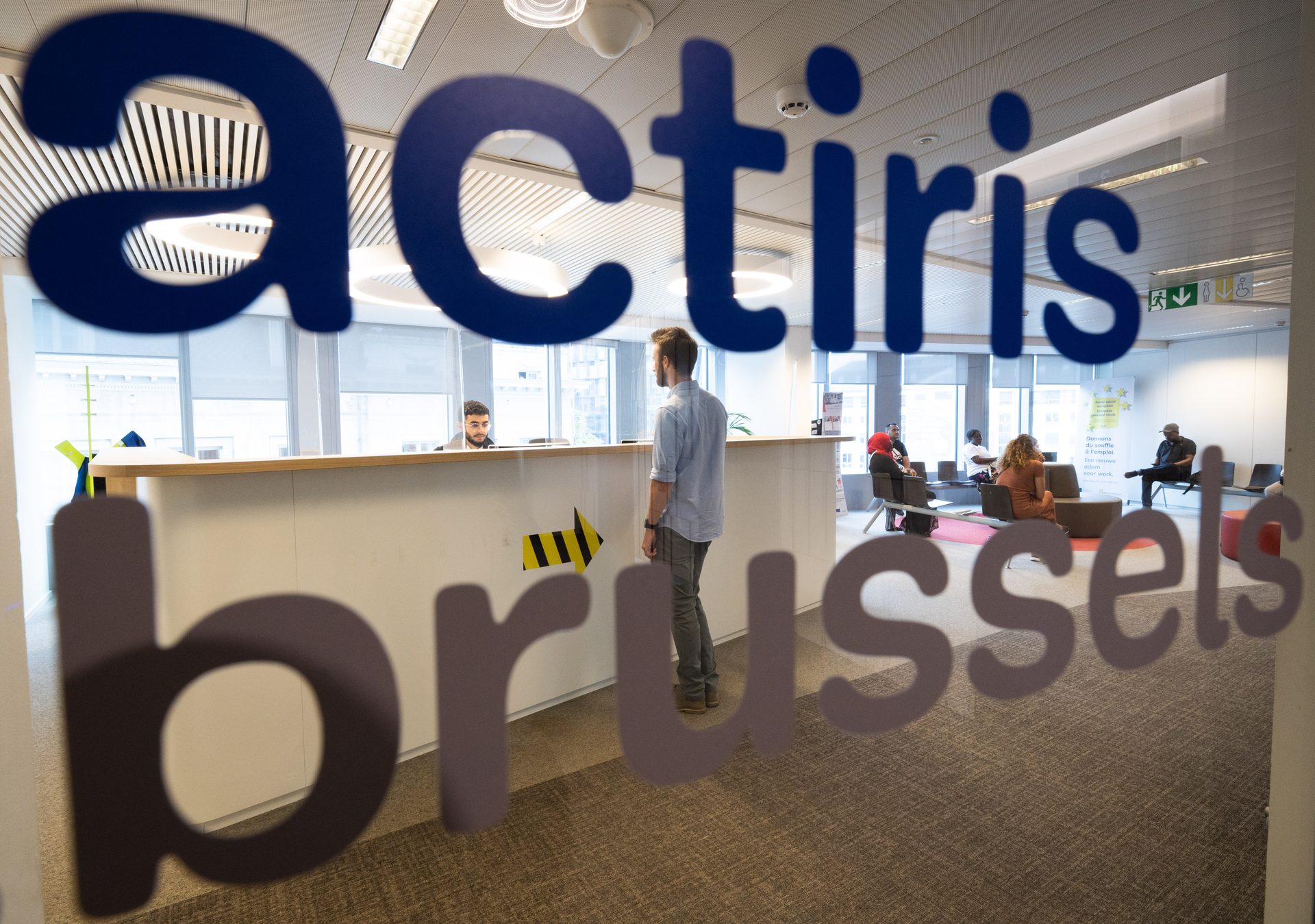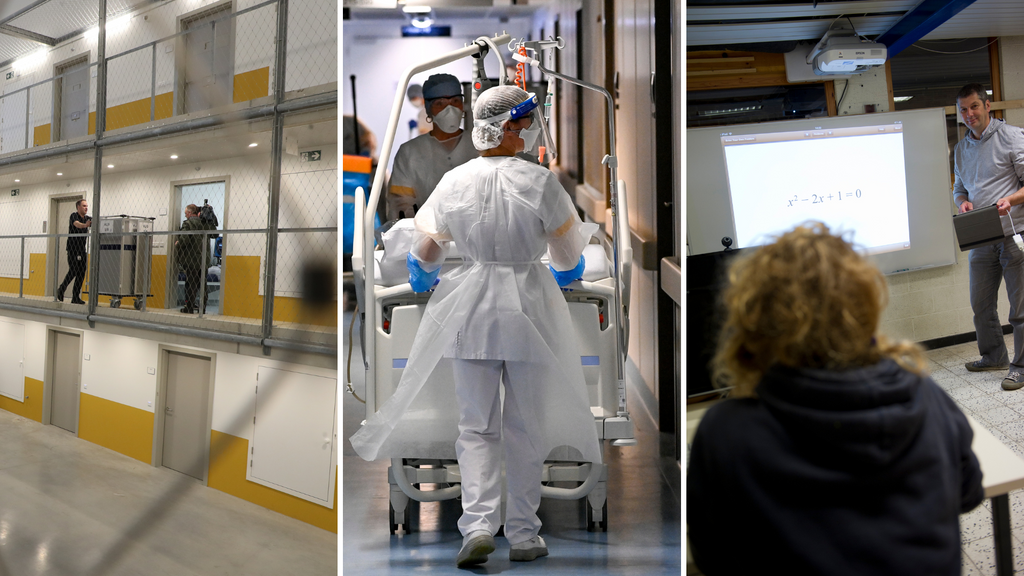Friday 1 September marks the start of a new month. As always in Belgium, this goes hand-in-hand with several changes brought about by new laws coming into force, both at the regional and national levels.
The changes touch on the start of the new school term, consumer protection and prison sentences – find the full list of changes and what this means for people living in Belgium below.
Nationwide changes
On Friday, a series of additional measures will come into force to better protect consumers from the debt industry. Today, those with a small outstanding debt can quickly see it escalate to a large amount, due to expensive reminders and additional costs from bailiffs, collection agencies and lawyers.
Most importantly, from 1 September, a first reminder for an invoice will be free of charge, and must also mention whether there could be additional costs for late payment. Consumers must be given at least 14 days without being charged any additional costs.
There will also be a cap on additional charges for late payment for all contracts concluded from this date onwards: For debts below €150, a maximum of €20 can be added; if the debts exceed €150 but are less than €500, a ceiling of €30 plus 10% of the amount due will apply.

Credit: Canva
This ceiling will rise to €65 plus 5% of the amount owed on the tranche in excess of €500, with a maximum of €2,000 if the outstanding amount is in excess of €500. Finally, lawyers and bailiffs who recover debts will come under the supervision of the FPS Economy, as is already the case for collection agencies.
As of Friday, prison sentences of between six months and two years will be enforced as part of Justice Minister Vincent Van Quickenborne's reform. For several years, prison sentences of up to three years were rarely carried out due to a lack of space in prisons, resulting in a sense of impunity.
To combat the high re-offending rate and therefore also for prison overcrowding this leads to, Van Quickenborne has gradually reintroduced the enforcement of shorter sentences in recent years. Since last September, prison sentences of between two and three years have been enforced. Abolishing sentences of less than six months is the final step.
Regional changes
From 1 September, the compulsory language test for newcomers learning Dutch, which they have to take at the end of the mandatory integration course, will be standardised across the region. Currently, differences between the education centres in the region's provinces mean that language levels are inconsistent.
The Flemish Government is pushing ahead with the reform despite criticism from the education field. Experts concluded that the test is not at an adequate level yet and is ineffective in measuring the student's language skills. Critics have claimed that it should not be implemented if the result of that test has legal consequences. Among other things, it would help determine whether someone is entitled to social housing.
Various NGOs also argued that the €180 registration fee should be reduced or even lifted for people for whom the test is compulsory, and went to the Constitutional Court. Compulsory and non-compulsory integration students are now entitled to the same exemptions.

Credit: Belga / Benoit Doppagne
In Brussels, young jobseekers will be systematically assessed on their professional, linguistic and digital skills from Friday onwards with the aim of checking that the skills of Brussels residents match the needs of the labour market.
This skills assessment will be accompanied by a pathway to employment via work placements and/or training. The measure will initially be rolled out to young people aged between 18 and 30 who have recently registered with Actiris, the region's employment centre, but eventually, the skills assessment will be extended to all jobseekers in Brussels.
Finally, in Wallonia, the use of single-use plastic cups will be banned at cultural, recreational, sporting, folklore and leisure events, whether held indoors or outdoors. In practical terms, the ban applies to retailers located within an event zone, including cinemas, shows, exhibitions, festivals, fairs, sports competitions, etc.
The aim of the measure is to reduce the amount of waste generated by plastic containers at these events, but also to reduce public litter and pollution in general.
Flemish education
The start of the 2023-2024 school term in Flanders this year is also marked by a series of changes to the curriculum and new measures to tackle the chronic teacher shortages.
Second and third-grade secondary school students will start this school year with the new minimum objectives or targets, which list what pupils should know and be able to do in the study "direction" or programme they opted for. This follows a turbulent process regarding these targets, which included previous attainment targets being annulled by the Constitutional Court.
Education experts welcomed the new targets as they offer more freedom for the teacher and focus more on quality rather than quantity. "However, new elements have also been added to raise the bar for subjects such as languages, mathematics and science," the Dutch-speaking Education Ministry noted.
Also new from this term is the standardised test for Dutch and Mathematics which should contribute to the fight against declining education quality. All Flemish pupils have to sit at four stages in their school career: in the fourth grade, the sixth grade, the second year of secondary school and the sixth year of secondary school.

A mother and her child leaving a school. Credit: Belga/ Dirk Waem
The tests will allow schools to compare their standards and level of education with other similar-sized schools, also aiming to provide an instrument to intervene in schools that are underperforming.
As of Friday, the Decree on Learning Support, which aims to find the best place to educate every pupil, either in mainstream or special education, regardless of their disability, will come into force. It will replace the much-discussed M-decree, introduced in 2015.
The new decree will ensure that pupils are able to integrate into the mainstream education system where possible, and will receive special education if necessary.
Finally, additional measures will be rolled out to tackle the chronic teacher shortages in Flemish schools. A recent survey showed that one in four school headteachers is still looking for at least one teacher.
These measures, "where creativity and flexibility are central," include the possibility of appointing teacher-specialists, inviting guest teachers from the private sector, and allowing for deputy headmasters in primary education to relieve the burden on boards. The aim is to get more people in the classroom and make the teaching profession more attractive.
Additionally, a total of 216 Flemish schools will have the chance to put existing regulations aside for a while and experiment with new formulas to attract teachers, for example by testing more flexible school teams, adjusting school hours or limiting teachers' assignments to 38 hours.
Working in Flanders
More changes will come into force in schools, specifically relating to existing education staff. They will be entitled to five days of unpaid "care leave" every year, which they can take if a partner, child or parent needs personal support or care.
Additionally, teachers who identify and report regulatory breaches at school, such as EU legislation on public procurement or privacy or environmental protection, will be better protected from reprisals or threats. Every school, academy or centre must have an internal channel to report breaches, but these can also be reported to the Flemish ombuds service.
From Friday, anyone who undergoes training with a view to entering so-called "bottleneck professions" (jobs for which employers are struggling to fill their vacancies such as nursing, becoming a site manager or cleaning assistant) can receive a premium for it.
Related News
- Customers will soon be able to opt for 'sustainable' delivery of packages
- Brussels and Antwerp residents face higher e-bike insurance premiums
Those who start the training receive €750. After successful completion of the training, €1,000 will be added, and those who have worked for at least 28 days within the four months following the training will receive an extra €1,500.
The aim of this measure is to fill the many vacancies for such professions. It is targeted at people who have been inactive on the labour market for more than two years and are committed to a long-term bottleneck training course of at least one school year.
Additionally, a unified system for workplace learning premiums will enter into force. Companies will receive a premium of €600 per apprentice undergoing on-the-job training through systems such as dual learning, work-based learning or internships. Companies that pay young people a stipend will receive a €1,000 premium.

